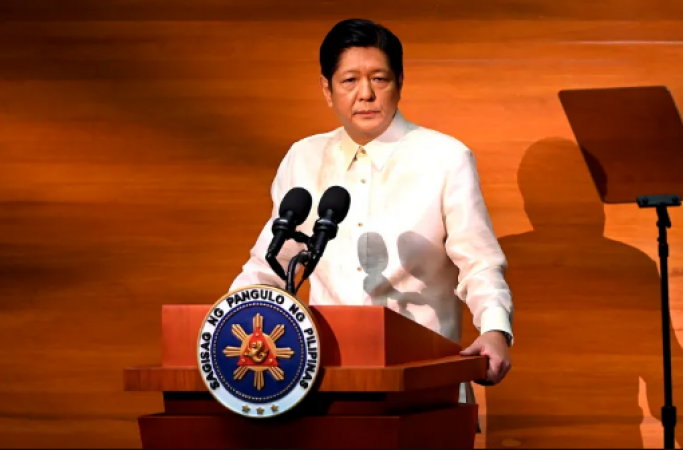
Manila: As a result of the ICC's denial of his request to halt an investigation into his father's brutal crackdown on drug dealers, Philippine President Ferdinand Marcos Jr. has cut off communication with the court.
In Manila on Tuesday, Marcos said to reporters, "That ends all our involvement with the ICC. We have effectively stopped communicating and interacting with one another at this point.
The Hague-based International Criminal Court's refusal last week to grant the Philippine government's request to end its investigation into alleged police cover-ups and executions during the ex-president Rodrigo Duterte's drug war led to the decision.
Also Read: Following Netanyahu's U-turn Israeli parties talk about justice reforms
After being suspended in 2021 at Manila's request so that it could conduct its own investigation, the court reopened the investigation in January.
Given the very serious doubts we have about the ICC's jurisdiction and what we view as actual attacks on the republic's sovereignty, Marcos declared, "We cannot cooperate with the ICC."
In 2018, Duterte ordered the Philippines to leave the agreement that established the ICC. In the presidential election of last year, Marcos' running mate was Sara Duterte, who is now the nation's vice president. In a resounding victory last May, Marcos—the son of former Philippine dictator Ferdinand Marcos—came into power.
When nations are unable or unwilling to investigate and prosecute crimes on their own, the ICC is billed as the court of last resort. The court has argued that even if a nation leaves the charter, the ICC can still look into crimes that were committed while it was still a member.
Also Read: Aung San Suu Kyi's party and most of the opposition are disbanded by the Myanmar junta
Officials in the Philippines have argued that their own law enforcement agencies are capable of looking into allegations regarding Duterte's drug war, which is said to have claimed the lives of more than 7,700 people. In 2021, Menardo Guevarra, the Philippines' solicitor general, asserted that more than 150 police officers may have engaged in criminal activity.
Also Read: UN human rights chief demands "decisive steps" to determine what has become of the missing Syrians
As long as police were acting in self-defense, according to Duterte, he never gave orders to kill drug suspects. He stated in 2021 that he would be ready to stand trial in the Philippines, but he wouldn't go before the ICC's "animals." The US threatened to have him tried by the ICC in 2016, despite the fact that Washington isn't even a signatory to the court, and the then-president called the threats "bullsh*t." He also criticised the US for making the threats.